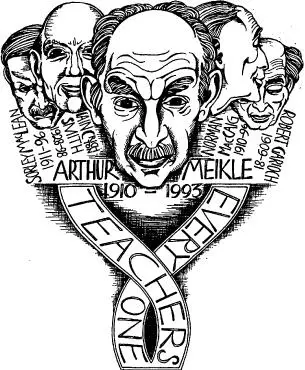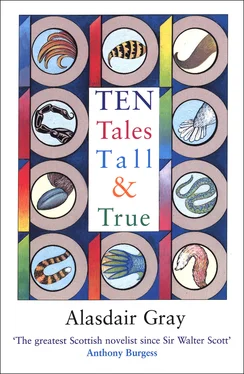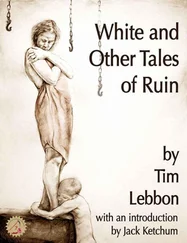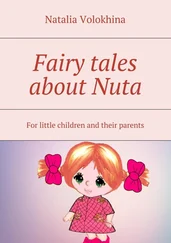This discussion impressed and disturbed me. Education — schooling — was admired by my parents and praised by the vocal part of Scottish culture as a way to get liberty, independence and a more useful and satisfying life. Since this was my own view also, I had thought the parts of my schooling which felt like slavery were accidents which better organization would abolish. That the parts which felt like slavery were a deliberate preparation for more serfdom — that our schooling was simultaneously freeing some while preparing the rest to be their tools — had not occurred to me. The book I at last wrote described the adventures of someone a bit like me in a world like that, and though not an autobiography (my hero goes mad and commits suicide at the age of twenty-two) it contained portraits of people I had known, Mr Meikle among them. While writing the pages where he appeared I considered several pseudonyms for him. (Strang? Craig? McGurk? Maclehose? Dinwiddie?) but the only name which seemed to suit him was Meikle, so at last I called him that. I was forty-five when the book got published and did not know if he was still alive, but thought he would be amused and perhaps pleased if he read it.
And he was alive, and read it, and was pleased. He came to my book-signing session at Smith’s in St Vincent Street, and said so. It was wonderful to see him again, as real as ever despite being a character in my book. Of course his hair was grey now, his scalp much balder, but my head was greying and balding too. I realized he had been a fairly young man when I first saw him in Whitehill, much younger than I was now.
Three years ago I got a note from Mr Meikle saying he could not come to the signing session for my latest novel, as arthritis had confined him to his home. He had ordered a copy from the bookshop, and hoped I would sign it for him, and either leave it to be collected by Mrs Meikle (who was still in good health) or bring it to him myself. I phoned and told him I could not bring it, as I was going away for a month immediately after the signing session, but I would inscribe a copy for Mrs Meikle to collect, and would phone to arrange a visit as soon as I returned. He said he looked forward to that.
I went away and tried to finish writing a book I had promised to a publisher years before. I failed, came home a month later and did not phone Mr Meikle. He was now one of many I had broken promises to, felt guilty about, wanted to forget. When forgetting was impossible I lay in bed remembering work to be finished, debts to be paid, letters to write, phone-calls and visits I should make. I ought also to get my false teeth mended, tidy my flat and clean the window facing my door on the communal landing. All these matters seemed urgent and I often fell asleep during efforts to list them in order of priority. Action only seemed possible when I jumped up to fend off an immediate disaster, which Mr Meikle was not.
Suddenly I decided to visit him without phoning. It seemed the only way. The sun had set, the street-lights shone, I was sure he was not yet abed, so the season must have been late in the year or very early. The close where he lived was unusually busy. A smart woman holding a clipboard came down and I was pressed to the wall by a bearded man rushing up. He carried on his shoulders what seemed a telescope in a felt sock. I noticed electrical cables on the stairs, and on a landing a stac of the metal tripods used with lighting equipment. None of this surprised me. Film making is as common in Glasgow as in other cities, though I did not think it concerned Mr Meikle. It did. His front door stood open and the cables snaked through it. The lobby was full of recording people and camera people who seemed waiting for something, and I saw from behind a lady who might have been Mrs Meikle carrying round a tray loaded with mugs of coffee. Clearly, a visit at this time would be an interruption. I went back downstairs regretting I had not phoned first, but glad the world was not neglecting Mr Meikle. I even felt slightly jealous of him.
A while after this abortive visit I entered a public house, bought a drink and sat beside a friend who was talking to a stranger. The friend said, “I don’t think you two know each other,” and introduced the stranger as a sound technician with the British Broadcasting Corporation. The stranger stared hard at me and said, “You may not know me but I know you. You arranged for a whole BBC camera crew to record you talking to your old school-teacher in his home, and did not even turn up.”
“I never arranged that!” I cried, appalled, “I never even discussed the matter — never thought of it!”
“Then you arranged it when you were drunk.”
I left that pub and rushed away to visit Mr Meikle at once. I was sure the BBC had made a mistake and then blamed me for it, and I was desperate to tell Mr Meikle that he had suffered intrusion and inconvenience through no fault of mine.
Again I entered his close and hurried up to his flat, but there was something wrong with the stairs. They grew unexpectedly steep and narrow. There were no landings or doors off them, but in my urgency I never thought of turning back. At last I emerged onto a narrow railed balcony close beneath a skylight. From here I looked down into a deep hall with several balconies round it at lower levels, a hall which looked like the interior of Whitehill Senior Secondary School, though the Whitehill I remembered had been demolished in 1980. But this was definitely the place where Mr Meikle lived, for looking downward I saw him emerge from a door at the side of the hall and cross the floor toward a main entrance. He did not walk fast, but a careful firmness of step suggested his arthritis had abated a little. He was accompanied by a party of people who, even from this height, I recognized as Scottish writers rather older than me: Norman MacCaig, Iain Crichton Smith, Robert Garioch and Sorley Maclean. As they accompanied Mr Meikle out through the main door I wanted to shout on them to wait for me, but felt too shy. Instead I turned and ran downstairs, found an exit and hurried along the pavement after them, and all the time I was wondering how they had come to know Mr Meikle as well or better than I did. Then I remembered they too had been teachers of English. That explained it — they were Mr Meikle’s colleagues. That was why they knew him.
But when I caught up with the group it had grown bigger. I saw many Glasgow writers I knew: Morgan and Lochhead and Leonard and Kelman and Spence et cetera, and from the Western Isles Black Angus and the Montgomery sisters, Derick Thomson, Mackay Brown and others I knew slightly or not at all from the Highlands, Orkneys and Shetlands, from the North Coast and the Eastern Seaboard, Aberdeenshire, Dundee and Fife, from Edinburgh, the Lothians and all the Borders and Galloway up to Ayrshire.
“Are all these folk writers?” I cried aloud. I was afraid that my own work would be swamped by the work of all these other Scottish writers.
“Of course not!” said Archie Hind, who was walking beside me, “Most of them are readers. Readers are just as important as writers and often a lot lonelier. Arthur Meikle taught a lot of readers that they are not alone. So did others in this mob.”
“Do you mean that writers are teachers too?” I asked, more worried than ever.
“What a daft idea!” said Archie, laughing, “Writers and teachers are in completely different kinds of show business. Of course some of them show more than others.”
I awoke, and saw it was a dream,
though not entirely.

Notes, Thanks and Critic Fuel
DEDICATION
Читать дальше













